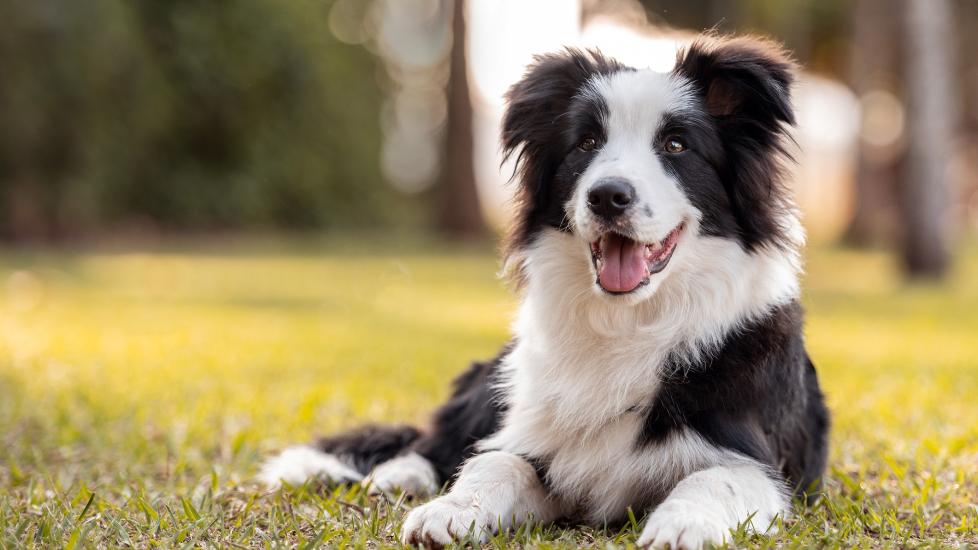Border Collie
Elayne Massaini/iStock / Getty Images Plus via Getty Images
Border Collies are high-energy working dogs that were historically bred to herd livestock on farms in Great Britain, according to the American Border Collie Association (ABCA). Today, you can still find Border Collies herding on farms, but they’re also popular family pets. They are nimble and agile dogs—built for fast, sharp movements.
The Border Collie’s size is between 30 and 55 pounds, and they typically stand between 18 and 22 inches tall. The breed often has a medium-length, double coat of wavy hair, though short-haired Border Collies are also common. No matter the length, popular Border Collie colors include black and white, all-black, red, lilac, and blue.
Caring for a Border Collie

Border Collies make wonderful pets for active singles and families. They have a spunky personality and love to be active with kids and parents. Border Collies also make good teammates for games of Frisbee, hiking, and agility competitions.
Border Collies are often cited as the smartest dog breed. This, paired with their abundant energy, means pet parents must dedicate time to exercise and mentally stimulate their dog. If you don’t provide a Border Collie with something productive to do, they may turn to more destructive forms of entertainment, like chewing your furniture or digging in your yard.
Border Collie Health Issues
The average Border Collie lifespan is 12–15 years, and they are considered a healthy breed. But, like all dogs, they can develop certain health issues throughout their life. Pet insurance cab be a good investment when bringing home a Border Collie puppy.
Hip Dysplasia
A common medical issue in Border Collies is hip dysplasia. Hip dysplasia occurs when the ball of the hip joint does not fit correctly into the socket of the hip joint.
This results in constant rubbing of two bones against each other, leading to inflammation and pain for the dog. Over time, the inflammation results in arthritis.
When purchasing a dog from a breeder, ask for records to see if the Border Collie puppy’s parents were screened for hip dysplasia by the Orthopedic Foundation for Animals (OFA) or the University of Pennsylvania (PennHIP).
Epilepsy
Border Collies can be more prone to epilepsy, a seizure disorder. This commonly starts around 2–5 years of age and will usually require anti-seizure medications to help control the condition.
There is no known explanation as to why some dogs suffer from epilepsy, but the Border Collie, among many other breeds, is predisposed to this condition.
Pet parents must stay alert for signs of a seizure, which include:
- Paddling the limbs
- Falling over
- Becoming stiff
- Urinating or defecating inappropriately
- Unusual behaviors such as abnormal jaw movements, excessive drooling, staring into space, etc.
Collie Eye Anomaly
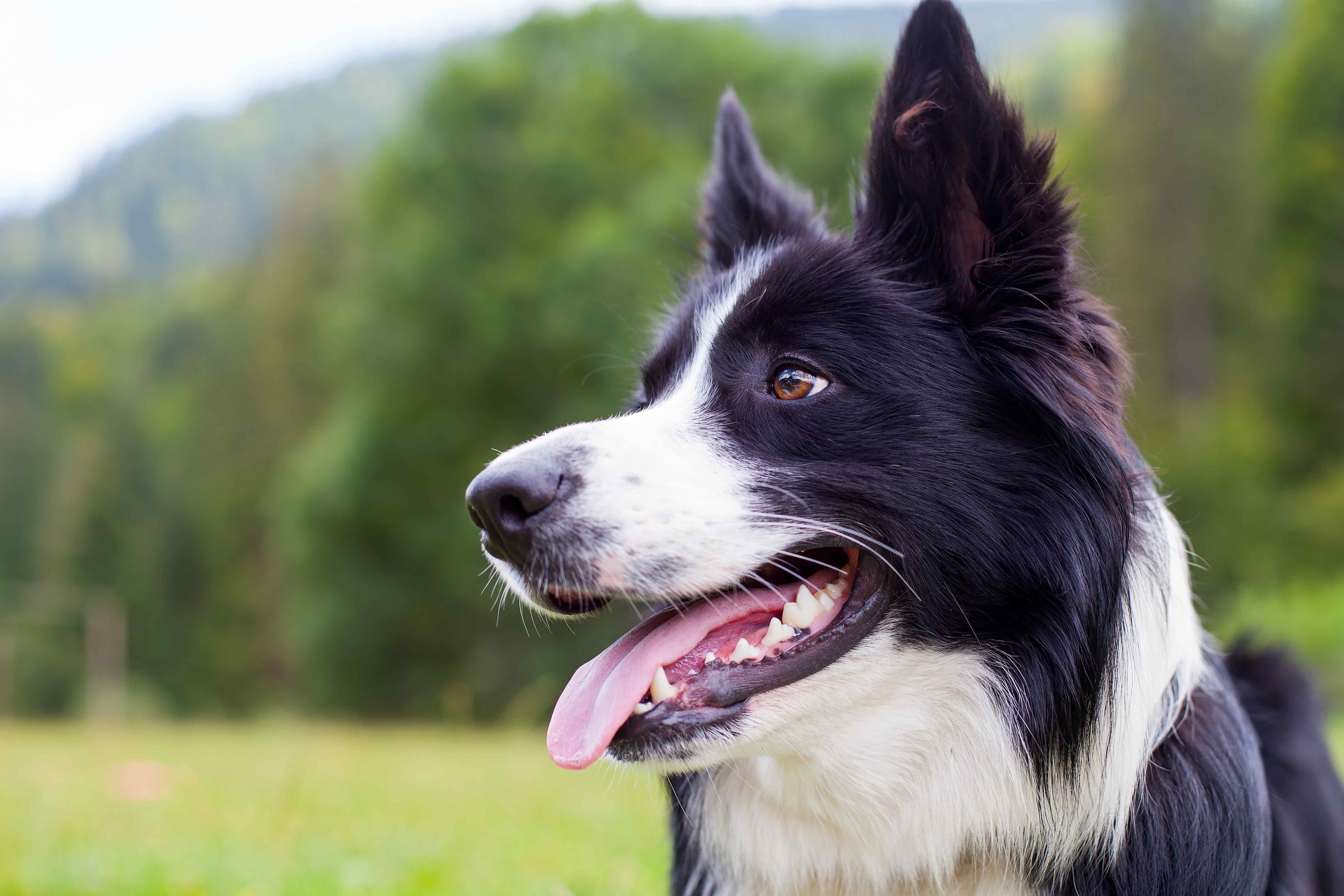
Border Collies can also experience a genetic eye disease called Collie eye anomaly.
Collie eye anomaly can cause malformations of the eyes, which can result in vision defects or blindness. The eye disorder is present from birth and is usually detected by the time a Border Collie puppy is 5–6 weeks old.
There is genetic testing for this defect, but Collie eye anomaly has very few treatment options. Therefore, it’s important to find a responsible Border Collie breeder who tests for this genetic condition and takes proactive measures to keep their dogs healthy.
Multidrug Resistance Mutation (MDR1)
Some herding breeds, including Border Collies, can have a mutation in a gene known as MDR1 (multidrug resistance mutation). An abnormality in the gene from birth can make affected Border Collies more sensitive to medications used commonly in veterinary medicine—such as certain medications or flea and tick preventatives.
Your veterinarian can easily test for this mutation with a simple blood test and recommend safe products and medications to use on your dog.
There are also cheek swab tests you can do at home as a part of a dog DNA test to see if your Border Collie has this genetic mutation.
Trapped Neutrophil Syndrome (TNS)
Trapped neutrophil syndrome (TNS) is a genetic health issue that compromises the immune system, which leads to chronic infection in affected dogs.
TNS is caused by a gene mutation that is only found in Border Collies. It’s present at birth, and dogs that have TNS will typically be smaller than their littermates and suffer from developmental delays.
TNS is not curable and is considered fatal, with affected dogs typically living only a few months. However, there are medications and treatment options available to help manage quality of life and prolong life expectancy.
There is genetic testing available to help flag TNS so breeders can ensure that they do not breed dogs that carry the gene.
Neuronal Ceroid Lipofuscinosis (CL)
Neuronal ceroid lipofuscinosis (CL) is caused by another genetic mutation that results in neurological symptoms such as seizures, personality changes, and blindness. Symptoms usually arise between 15 and 20 months of age and lead to a drastically reduced lifespan for a Border Collie.
Genetic testing can be performed by breeders to make sure they do not breed dogs with this defect.
What To Feed Border Collies
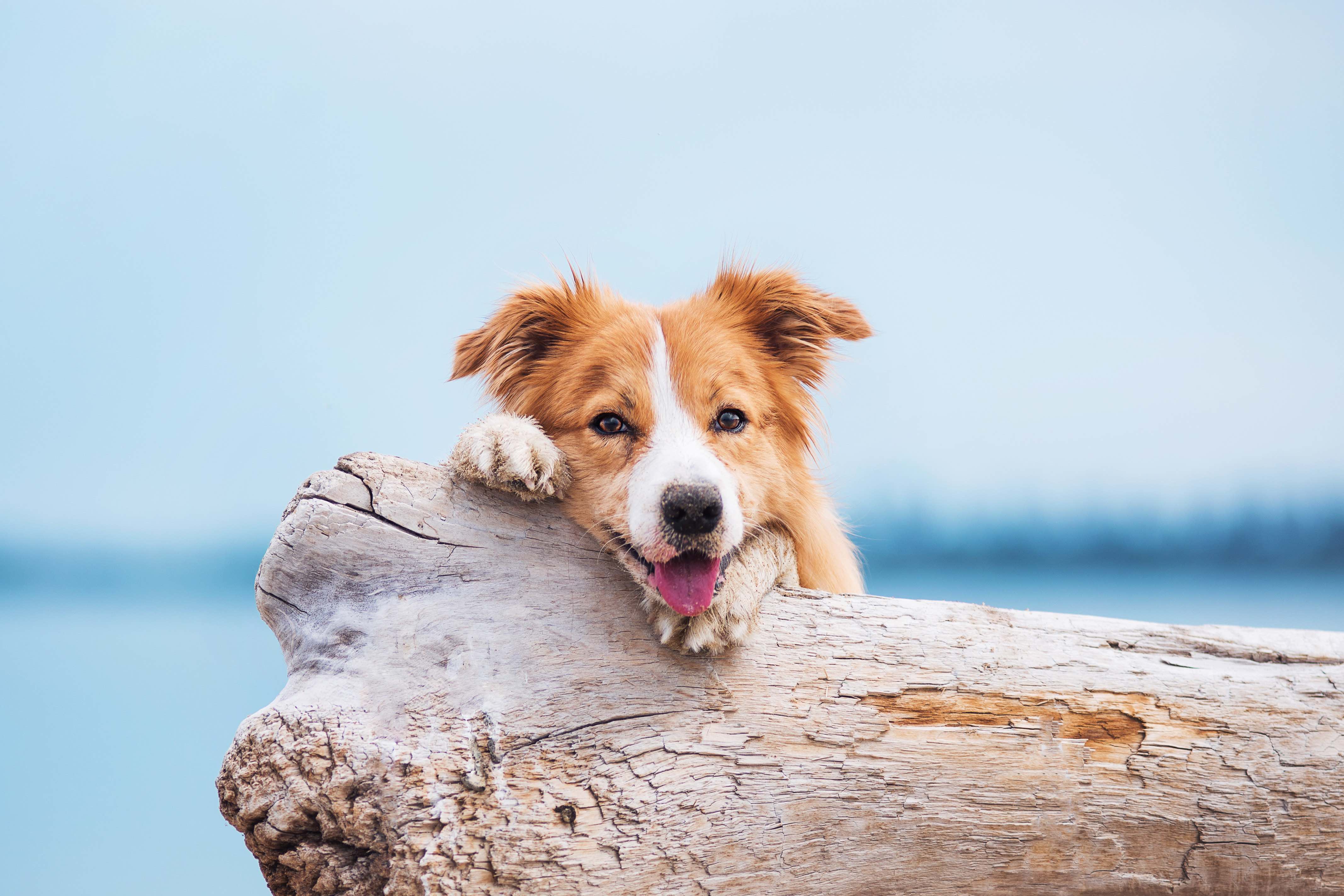
Feed your Border Collie a high-quality food that has an increased protein content to support their high activity and muscles. A food that is high in omega-3 fatty acids will also help keep their coat shiny and joints healthy.
Talk to your veterinarian to determine which food is the best for your Border Collie, but a good place to start is by choosing a food approved by the Association of American Feed Control Officials (AAFCO). AAFCO approval means that the food meets the standard nutritional requirements and regulations for pet foods.
It's also important to feed your Border Collie a food appropriate for their life stage. A high-quality puppy food can be fed until your Border Collie puppy is 12–18 months of age. Then, switch to an adult-stage food.
How To Feed a Border Collie
Because Border Collies are so active, obesity is rare in this breed. Meals can be given twice daily to adult dogs. Border Collie puppies need to eat three meals each day on a regular schedule to prevent hypoglycemia (low blood sugar).
They may enjoy being fed with interactive toys and puzzle feeders because this breed is so smart. This will also provide much-needed mental stimulation.
How Much To Feed a Border Collie
Follow the manufacturer instructions and your veterinarian’s advice on how much to feed your Border Collie to help them maintain a healthy weight.
Every food has a different caloric value, so there is not a one-size-fits-all feeding amount for Border Collie dogs. A slow transition is always best if you change brands or flavors, and don't assume that you should give your pet the same amount of food in their bowl. Follow the feeding guide recommended by the manufacturer and check with your vet to confirm the right feeding amount for the new food.
Nutritional Tips for Border Collies
Border Collies get all their nutrients from eating an AAFCO-approved dog food. However, they can benefit from certain supplements at the recommendation of your vet. For example, your vet may prescribe a joint supplement to maintain cartilage health or if your dog is diagnosed with hip dysplasia.
Behavior and Training Tips for Border Collies
Border Collie Personality and Temperament
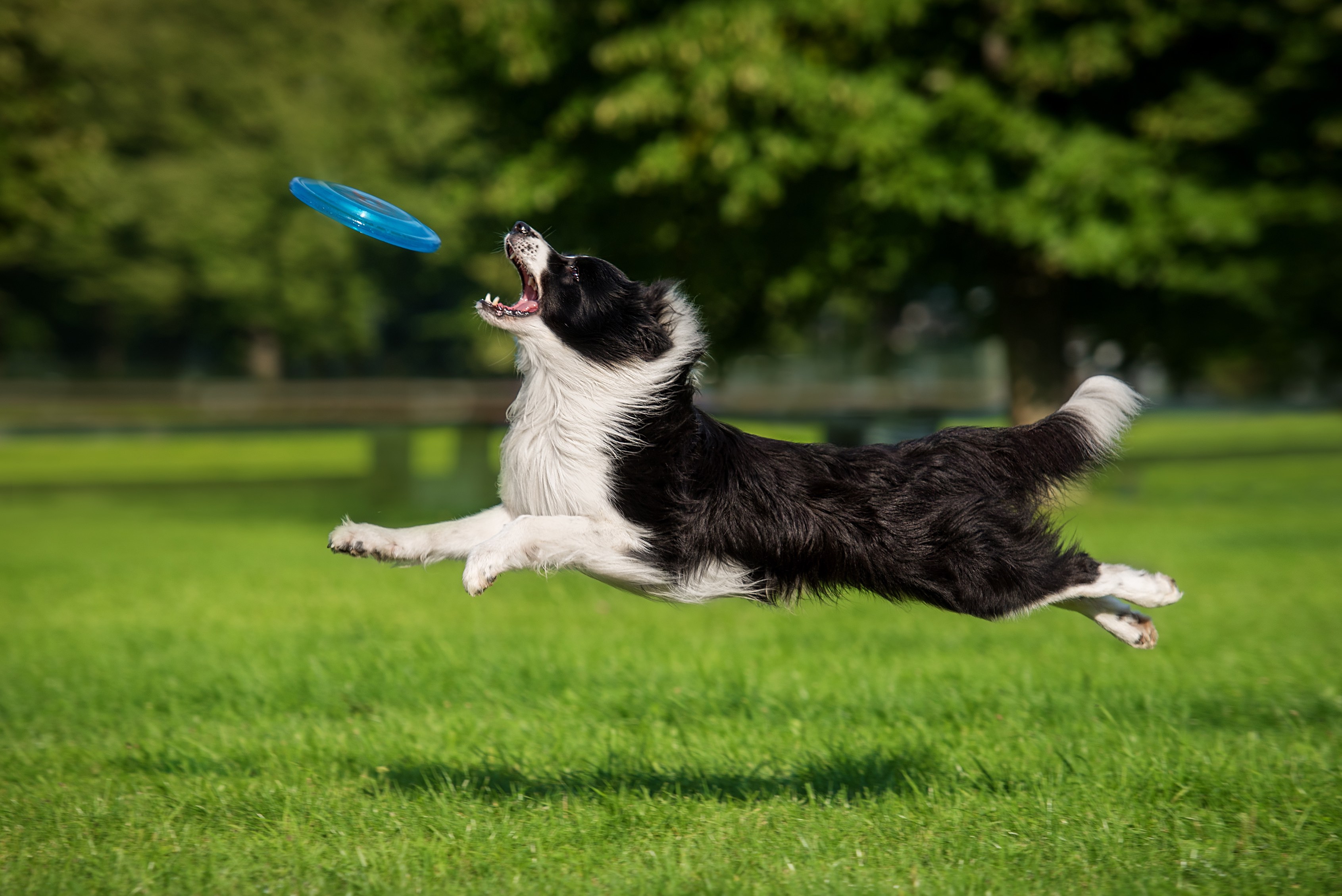
The biggest Border Collie personality trait is their nonstop energy. They are a herding breed and need to have a job to do. These dogs are also very smart. Therefore, they require a lot of mental stimulation.
Border Collies need at least one to two hours of exercise every day, especially when they are young. Senior Border Collies might only need about 30 minutes of exercise a day if they are starting to develop mobility issues, such as arthritis.
Even family dogs who have never worked on a farm are herders at heart, and Border Collies have been known to herd other pets in the household or even children. Training with positive reinforcement, early socialization, and consistent mental stimulation are essential with a Border Collie. This mental stimulation can come from simple games, but Border Collies also enjoy more rigorous activities such as agility, flyball, or herding competitions.
Border Collie Behavior
Border Collies can be reserved around strangers, so socialization with other dogs and people in a variety of situations is paramount to help them develop into healthy, well-acclimated adult dogs. Socialization must begin as soon as you bring home your Border Collie puppy.
Border Collies need at least one to two hours of exercise every day, especially when they are young. Senior Border Collies might only need about 30 minutes of exercise a day if they are starting to develop mobility issues.
Without proper training or consistent mental stimulation, Border Collies can develop behavioral issues such as trying to herd children, chewing, or digging. Border Collies may also bark excessively when bored or frustrated, so be prepared to always have an appropriate activity ready to keep them entertained.
Border Collie Training
The Border Collie’s working dog instincts, high intelligence, and high energy level can make training a fun activity. The basic commands will be easy and Border Collies will absolutely thrive in advanced training. They are made for high-impact activities and easily catch on to games such as Frisbee and fetch.
Border Collies need to start training as soon as possible because they are prone to destruction without the proper mental stimulation. Redirecting them from their natural instincts will be important as well so they do not herd young children or other pets.
Fun Activities for Border Collies
-
Basic and advanced obedience training
-
Herding work
-
Hiking
-
Flyball
-
Agility
-
Frisbee
-
Fetch
Border Collie Grooming Guide

This breed has moderate grooming needs and doesn’t require any special considerations. Border Collies shed year-round, so it’s not uncommon to find black or white (or other colors, since there are also blue, lilac, merle, and red Border Collies) fur around your home.
Skin Care
Due to their double-hair coats, most Border Collies have protected, healthy skin and do not need special skincare routines. However, if you notice excessive scratching or licking, consult your veterinarian to make sure their skin is healthy.
Coat Care
Border Collies have medium-length, double-hair coats that shed regularly. They need regular bathing with an oatmeal shampoo (monthly) and brushing with a slicker brush (two to three times per week) to keep their coat clean and free of matts, but this can easily be done at home.
Routine brushing will also remove loose hairs and help prevent excess shedding. If your Border Collie pup gets muddy or dirty, more frequent brushing and bathing is necessary.
Eye Care
Talk to your vet if you notice discharge, inflammation, or injuries in your Border Collie’s eyes. Aside from monitoring, your dog shouldn’t need any regular eye upkeep.
Ear Care
It’s a good habit to regularly check your Border Collie’s ears. This will help you catch and manage wax or debris buildup that can accumulate through their outdoor activities. Any buildup can be managed with a simple ear cleaning with a veterinary-approved cleanser.
If you notice inflammation, head shaking, or pawing at their ears, call your veterinarian and make an appointment. These could be signs of an ear infection.
Nail Care
Because of their high activity level, Border Collie dogs may need less toenail trimming than other breeds. But check their nails every few weeks and trim if necessary. If you can hear them clicking on your floor, it’s time for a trim.
Considerations for Pet Parents
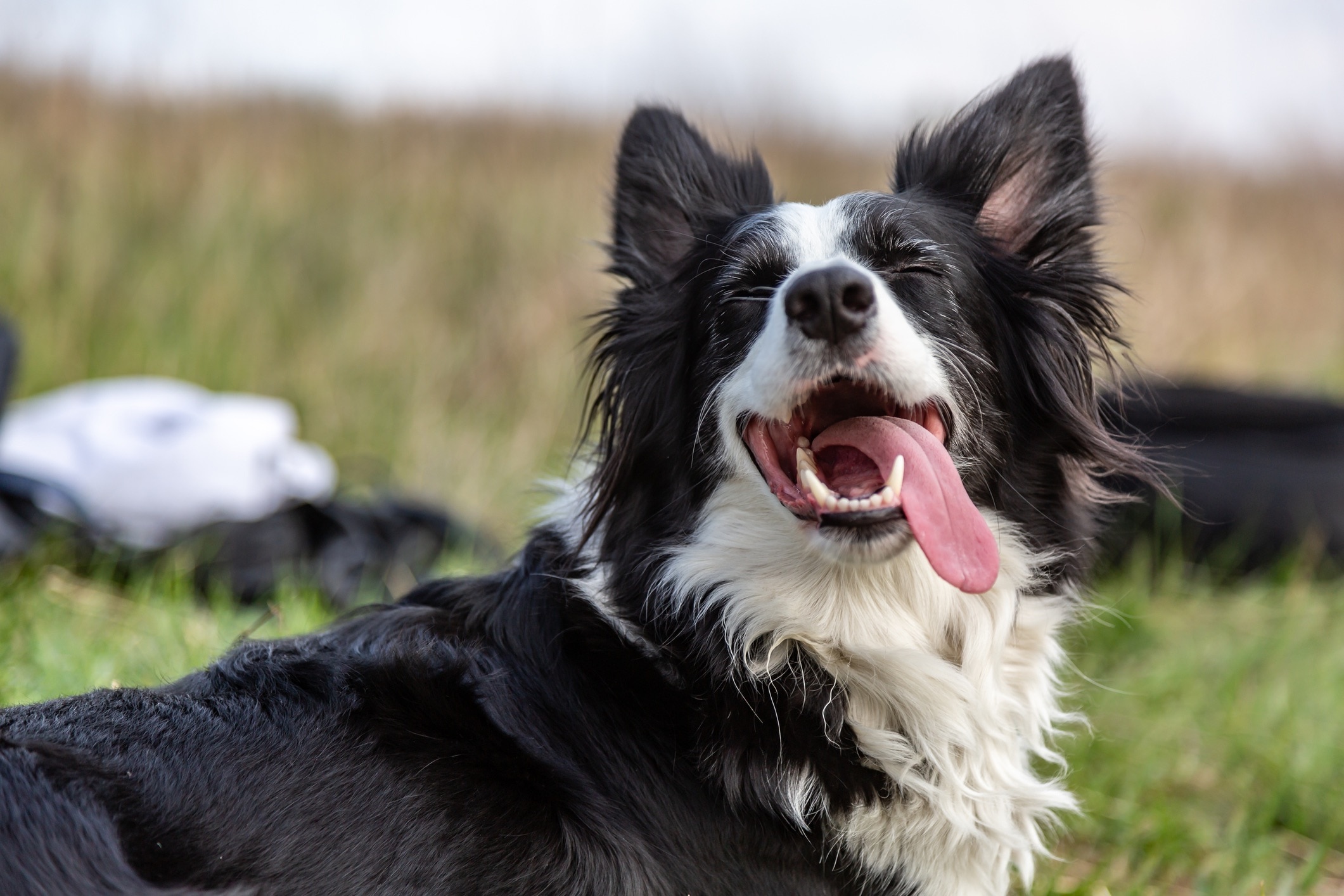
When considering a Border Collie as a pet, be aware that this is a highly energetic and highly intelligent breed that needs to be kept busy. If you’re looking for a dog with a more laid-back and calm lifestyle, a Border Collie is not the best fit for you. This dog needs an active family to thrive.
Border Collie FAQs
Do Border Collies shed?
Border Collies have a double coat that sheds moderately. Twice a year (during the fall and spring), Border Collies shed more excessively to prepare for the upcoming season.
How long do Border Collies live?
The average Border Collie lifespan is 12–15 years.
Is a Border Collie a good family dog?
Border Collies can be good family dogs with the right family. They need a family that will prioritize exercise, mental stimulation, and training.
Are Border Collies smart dogs?
Border Collies are commonly cited as one of the smartest dog breeds.
How much does a Border Collie cost?
The average Border Collie puppy from a reputable breeder will range from $750 to $3,000. There are some color patterns, such as the red or blue merle, that can cost over $4,000.
What’s the difference between Border Collies vs. Australian Shepherds?
Border Collies and Australian Shepherds are both medium-sized dogs bred to herd livestock. But there are notable differences between the two breeds. Australian Shepherds are a bit stockier than Border Collies and many have their tails docked. Aussies were also bred in the U.S., while Border Collies are from the U.K.
What’s the difference between Collies vs. Border Collies?
Collies either have short fur or a long coat (compared to a Border Collie’s medium-length waves). Collies are also taller and heavier than Border Collies, and (though they’re still an energetic herding breed) they don’t have the nonstop energy of a Border Collie.
